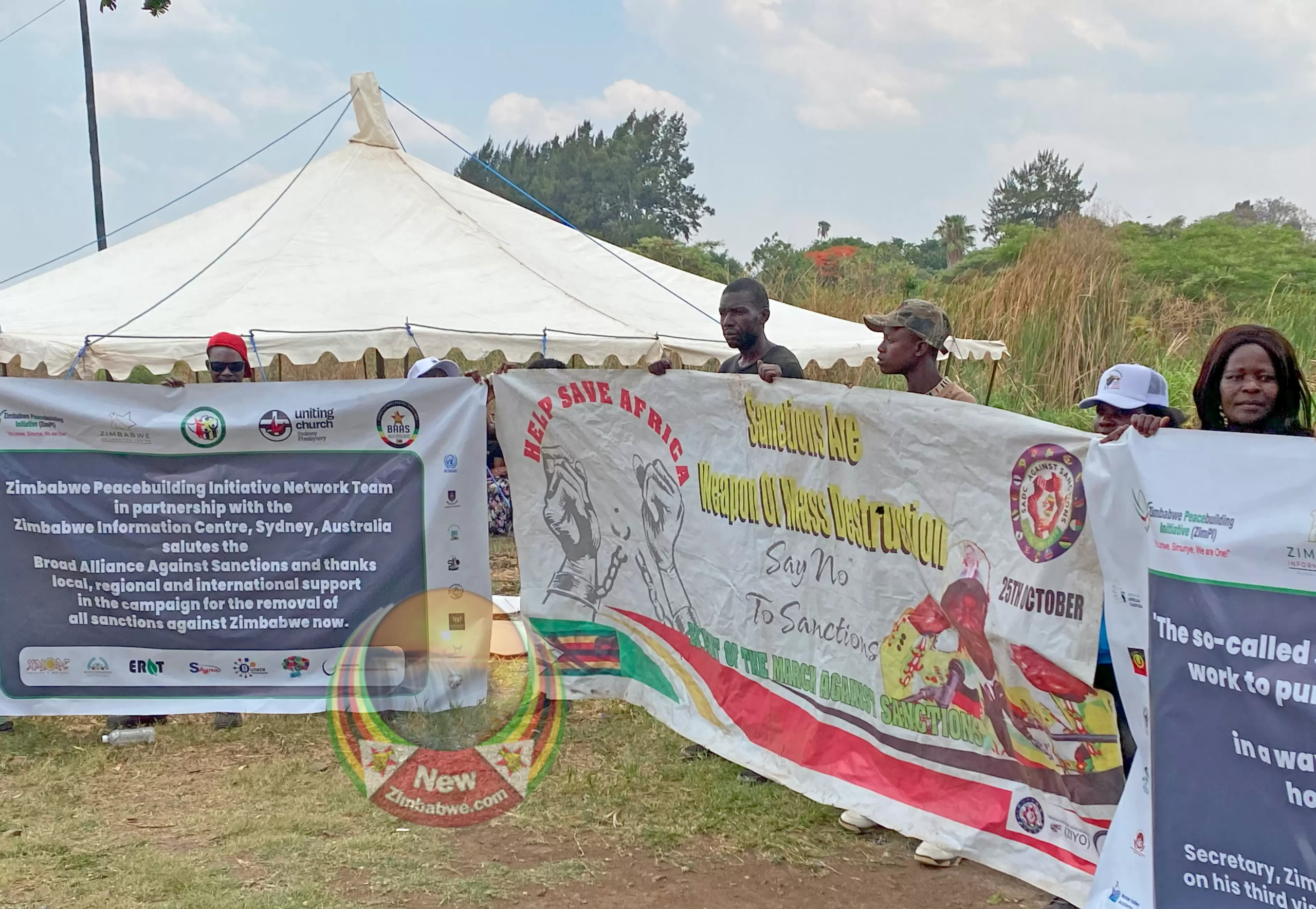By Thandiwe Garusa
ANTI-SANCTIONS activists, who have camped outside the United States Embassy premises in Harare for over five years, claim they were offered houses, luxury cars, and substantial funds to vacate the area but declined the offers.
The activists under the banner of ‘Broad Alliance Against Sanctions (BAAS)’ set up tents at the main entrance of the U.S. Embassy since March 2019, and have remained put, vowing to stay until the restrictive measures are lifted.
Speaking during a poorly-attended anti-sanctions march on Friday, marking Anti-Sanctions Day, BAAS vice chairperson, Rachel Kamangira alleged that former U.S. Ambassador to Zimbabwe, Brian Nichols, offered the group incentives to leave the embassy but they refused the offers.
“We had a meeting some time back with Ambassador Brian Nichols, who asked us to leave the embassy premises and offered us each luxury cars, houses, and money that would last a lifetime.
“We refused to be bribed; we refused their offer. We cannot be sellouts.
“We are still here, we refuse to be bribed, and we are not going anywhere until the sanctions are removed,” Kamangira said.
In March, U.S. President Joe Biden issued an executive order ending a Zimbabwe sanctions programme that had been in place since 2003, while simultaneously sanctioning 11 individuals for alleged human rights abuses and corruption.
The sanctions were initially imposed in response to violent, uncompensated land seizures from predominantly white commercial farmers across Zimbabwe in the 2000s.
Although the sanctions specifically target a select few individuals, the Zimbabwean government argues that they adversely impact ordinary citizens and should be lifted.
